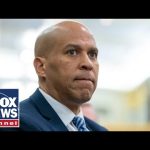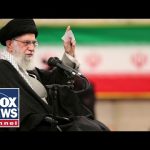President Trump’s renewed push on tariffs and trade negotiations has once again put America’s economic future in the spotlight. With a 90-day pause on most tariffs and high-stakes talks underway with the European Union, China, and over a dozen other countries, Trump is betting big that his tough approach will yield better deals for American workers and consumers. He’s made it clear: the days of America getting the short end of the stick are over, and he’s not afraid to use tariffs as leverage to bring trading partners to the table.
The situation with China, however, remains the biggest wildcard. Despite Trump’s optimism about a potential deal, negotiations have been rocky, with China pushing back hard against what it calls “unilateral bullying.” Tariffs on Chinese goods have soared to as high as 145%, while China has retaliated with its steep tariffs on U.S. imports. The administration’s strategy is to isolate China by rallying traditional allies like the EU, Japan, and South Korea to stand firm against Beijing’s unfair trade practices. This approach is bold, and if successful, could finally force China to play by the rules or risk being shut out of the world’s largest markets.
But there’s no denying that tariffs come with real costs. American consumers are already feeling the pinch, with prices for everyday goods like shoes and clothing jumping by double digits. The average household is losing thousands of dollars a year to higher prices, and small businesses are struggling to absorb the added costs. Critics, including Federal Reserve Chair Jerome Powell, warn that these tariffs could slow economic growth and fuel inflation. Yet Trump remains steadfast, arguing that the short-term pain is worth the long-term gain of a fairer, more secure American economy.
What’s often overlooked by the mainstream media is that Trump’s approach is finally forcing our allies to step up and share the burden of confronting China. The EU, once content to let America do the heavy lifting, is now actively negotiating for a deal, with leaders expressing confidence that an agreement is within reach. Countries like Japan, South Korea, and India are also in talks, hoping to secure exemptions and avoid the full brunt of the new tariff regime. This is the kind of global coalition-building that’s been missing for decades, and it’s only happening because Trump is willing to play hardball.
In the end, Americans should feel cautiously optimistic. Yes, tariffs are raising prices in the short run, but Trump’s willingness to stand up to China and demand better deals from our allies is a necessary course correction after years of weak leadership. If these negotiations succeed, we could see a future where American workers are protected, our industries are stronger, and our economy is less dependent on hostile foreign powers. That’s a future worth fighting for—even if it means weathering a little turbulence along the way.




